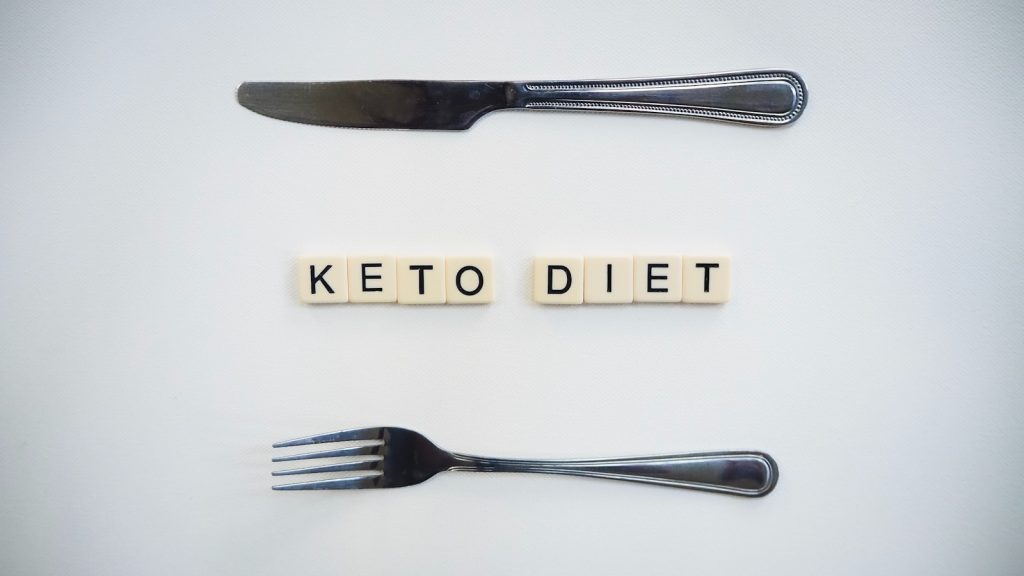Are you tired of trying diet after diet with little success? I know the feeling all too well. Hi, I’m Sarah, and I’ve been on a journey to find the right eating pattern for my body and overall well-being. After hearing about the keto diet from a friend, I decided to give it a try. Little did I know that this decision would lead to significant changes in my life.
The ketogenic diet or keto eating pattern has been making waves in the wellness community, promising weight loss and improved health. Intrigued, I dove headfirst into the world of ketosis and learned a few important things along the way. If you’re considering embarking on the keto journey yourself, there are a few key factors you should know before taking the plunge.
But first, let me paint a picture for you. Imagine feeling energized and effortlessly shedding those stubborn pounds without feeling like you’re depriving yourself. That’s what the keto diet promises and it certainly caught my attention. As I started my research, I discovered that the keto diet involves consuming high amounts of fat, moderate protein, and minimal carbohydrates.
What is the Ketogenic Diet?
The ketogenic diet is an eating pattern that focuses on reducing carbohydrate intake and increasing fat intake to induce a state of ketosis in the body. Ketosis is a metabolic process where your body produces ketones, which are water-soluble byproducts of the breakdown of fat in the liver. When your body is in ketosis, it relies on ketones as its primary source of energy instead of glucose. This shift in fuel source can have various effects on the body, including increased fat burning and weight loss. The ketogenic diet typically aims for a macro ratio of 75% fat, 20% protein, and 5% carbohydrates.
Pros and Cons of the Keto Diet
Like any diet, the ketogenic diet has its pros and cons. Understanding both sides can help you make an informed decision about whether keto is the right eating pattern for you. Let’s take a closer look.
Pros of the Keto Diet
- Rapid weight loss: Many individuals experience significant initial weight loss on the keto diet. This can be attributed to reduced calorie intake and increased feelings of fullness.
- Improved satiety: The high-fat, moderate-protein nature of the keto diet can help keep you feeling satisfied between meals, reducing the likelihood of snacking or overeating.
- Potential health benefits: The keto diet has shown promise for certain health conditions, such as epilepsy and type 2 diabetes. It may also improve risk factors for heart disease and help manage insulin sensitivity.
Cons of the Keto Diet
- Challenges with long-term maintenance: While keto can lead to rapid weight loss, sustaining these results over the long term can be challenging for some individuals.
- Adherence difficulties: The drastic reduction in carbohydrate intake can make it challenging to stick to the keto diet, especially during the initial phase when you may experience cravings or the “keto flu”.
- Restriction of food groups: The keto diet restricts or limits the intake of certain foods high in carbohydrates, including fruits, grains, and some vegetables. This can lead to reduced fibre intake, which is important for digestive health.
It’s important to weigh both the pros and cons of the keto diet before deciding if it aligns with your goals and lifestyle. Considering your personal preferences, health conditions, and long-term sustainability can help guide your decision-making process.
The keto diet can be a powerful tool for weight loss and certain health conditions. However, it’s essential to carefully consider the potential challenges and limitations associated with this eating pattern.
Now that you have a better understanding of the pros and cons of keto, let’s explore the impact of the diet on overall health.
The Impact of Keto on Health
Research suggests that the ketogenic diet may have various benefits for health. It has been shown to improve risk factors for heart disease, such as body fat, cholesterol levels, blood pressure, and blood sugar. The diet is also being studied as a potential treatment for cancer, as it may help slow tumour growth. Additionally, it may have positive effects on neurological conditions like Alzheimer’s disease and epilepsy. For people with diabetes, the keto diet can improve insulin sensitivity and blood sugar management. However, it’s essential to consult with a healthcare professional before starting a keto diet to ensure it’s safe and appropriate for your specific health condition.
Improvements in Heart Disease Risk Factors
Studies have shown that the ketogenic diet can have a positive impact on risk factors associated with heart disease. This includes reducing body fat levels, improving cholesterol profiles by increasing HDL (good) cholesterol and decreasing LDL (bad) cholesterol, lowering blood pressure, and regulating blood sugar levels. These improvements contribute to overall cardiovascular health and may reduce the risk of heart disease.
Potential Benefits for Cancer Treatment
Emerging research suggests that the ketogenic diet may have potential benefits in cancer treatment. Preliminary studies have shown that the diet may help slow tumour growth and improve the effectiveness of certain cancer therapies. While more research is needed to fully understand the role of the ketogenic diet in cancer treatment, it holds promise as a complementary therapeutic approach.
Positive Effects on Neurological Conditions
The ketogenic diet has shown promise in improving neurological conditions, particularly Alzheimer’s disease and epilepsy. Alzheimer’s disease is characterized by a decline in brain function, and the ketogenic diet is believed to support brain health by providing an alternative energy source for the brain in the form of ketones. Additionally, the diet has been used as a therapeutic approach for epilepsy since the 1920s, with studies showing a reduction in seizures for some individuals.
Improving Blood Sugar Management in Diabetes
For individuals with diabetes, the ketogenic diet can have positive effects on blood sugar management and insulin sensitivity. By restricting carbohydrate intake, the diet reduces the need for insulin and enhances the body’s ability to regulate blood sugar levels. However, it’s crucial to work closely with a healthcare professional to ensure proper monitoring and adjustment of diabetes medications while following a keto diet.
What to Eat on the Keto Diet
The keto diet focuses on consuming low-carb, high-fat foods to achieve and maintain ketosis. By reducing carbohydrate intake, the body enters a state of ketosis where it burns fat for energy instead of glucose. Here are some examples of foods that are typically included in a keto diet:
- Meat: Choose lean cuts of meat, such as beef, pork, and poultry. These are excellent sources of protein and healthy fats.
- Fatty Fish: Include fatty fish like salmon, mackerel, and sardines in your diet. They are rich in omega-3 fatty acids, which have numerous health benefits.
- Eggs: Eggs are a keto-friendly food that is versatile and nutrient-dense. They are high in protein and healthy fats.
- Butter: Butter is a staple in the keto diet as it is rich in fat and adds flavour to various dishes.
- Cheese: Enjoy cheese in moderation on the keto diet. Choose options like cheddar, mozzarella, and cream cheese.
These low-carb, high-fat foods help you stay satiated while keeping your carbohydrate intake low. However, it’s important to note that the keto diet restricts or limits the intake of certain foods high in carbohydrates, such as grains, fruits, starchy vegetables, and sugary foods.
To have a better understanding, let’s take a look at a table summarizing the key foods to include and restrict on the keto diet:
| Foods to Include | Foods to Restrict |
| Meat (beef, pork, poultry) | Grains (rice, wheat, oats) |
| Fatty Fish (salmon, mackerel, sardines) | Fruits (bananas, apples, oranges) |
| Eggs | Starchy Vegetables (potatoes, corn, peas) |
| Butter | Sugary Foods (cakes, cookies, candies) |
| Cheese |
This table clearly illustrates the importance of including low-carb, high-fat foods in your keto diet while avoiding or limiting foods that are high in carbohydrates.
Challenges and Side Effects
Embarking on a keto diet can be an exciting journey towards improved health and weight loss. However, it’s essential to be aware of the challenges and potential side effects that may arise along the way.
Keto Flu
During the initial phase of the diet, many individuals experience what is commonly known as the “keto flu.” This temporary condition can cause symptoms such as brain fog, fatigue, and even headaches. The keto flu occurs as your body adjusts to using fats instead of carbohydrates as its primary source of energy. It’s crucial to stay hydrated, consume enough electrolytes, and be patient as your body adapts to this new metabolic state.
Food Cravings
One of the significant challenges of a keto diet is dealing with food cravings, especially for carb-rich foods. It’s not uncommon to experience intense cravings for items like bread, pasta, or sugary treats. These cravings can be challenging to resist, but it’s important to stay focused on your goals and find keto-friendly alternatives to satisfy your hunger.
“Keto Breath”
Another potential side effect of the keto diet is what some refer to as “keto breath.” Ketones produced during ketosis can result in a metallic taste or unpleasant breath odour. While this side effect is temporary and typically goes away on its own, practising good oral hygiene, such as regular brushing and using mouthwash, can help alleviate the issue.
Digestive Issues
Due to the low carbohydrate and fibre intake on a keto diet, some individuals may experience digestive issues like constipation or diarrhoea. It’s crucial to prioritize fiber-rich foods, such as low-carb vegetables and nuts, to maintain healthy digestive function. Additionally, staying properly hydrated can also aid in preventing these issues.
Weight Regain
Once you reintroduce carbohydrates back into your diet, it’s possible to experience weight regain. This can happen if carbohydrate intake exceeds your energy expenditure, leading to an increase in body fat. It’s essential to transition out of a keto diet gradually and focus on long-term sustainable eating habits to maintain weight loss achievements.
Keto and Weight Loss
The keto diet is known for its potential to facilitate rapid weight loss, primarily due to a reduction in water weight. When you restrict carbohydrates on the keto diet, your body starts using glycogen stores, which are stored with water. As a result, you shed excess water weight, leading to initial quick weight loss. However, it’s important to understand that this weight loss is often temporary and not sustainable in the long term.
While the initial rapid weight loss on the keto diet can be motivating, it’s crucial to focus on long-term weight maintenance. Simply adopting a short-term eating pattern won’t lead to lasting results. Instead, the key to sustainable weight loss is making long-term lifestyle changes that support a healthy and balanced diet.
Although the keto diet doesn’t require strict calorie counting, it’s still important to keep in mind that caloric intake matters. To achieve and maintain weight loss, you need to find the right balance between calorie intake, macronutrient distribution, and overall dietary quality.
To effectively track your calorie intake on the keto diet, you can consider using a food diary or a mobile app. These tools can help you become more aware of your eating habits and ensure you are maintaining a calorie deficit for weight loss.
Below, you’ll find a breakdown of the recommended macronutrient distribution on the keto diet:
| Macronutrient | Percentage |
| Fat | 75% |
| Protein | 20% |
| Carbohydrates | 5% |
It’s important to consult with a healthcare professional or registered dietitian before starting the keto diet to ensure it aligns with your specific health goals and needs.
Conclusion
The ketogenic diet is a popular eating pattern that involves consuming high amounts of fat, low to moderate protein, and very few carbohydrates. It has gained recognition for its potential in promoting weight loss and improving certain health conditions. However, it is crucial to approach the keto diet with caution and seek guidance from a healthcare professional, especially if you have any underlying health concerns.
It is important to be aware of the potential challenges and side effects that may come with the ketogenic diet. Starting the diet may lead to symptoms of the “keto flu” and food cravings. Other side effects such as “keto breath” and digestive issues may also occur. Additionally, while the initial weight loss on the keto diet can be rapid, maintaining the weight loss in the long term can be challenging.
As with any diet, individual results may vary. It is vital to find the right approach that works for you and make sustainable lifestyle changes for long-term success. The ketogenic diet can be a helpful tool if it aligns with your goals and is implemented correctly. Consulting a healthcare professional and considering potential challenges and side effects will enable you to navigate the keto journey more effectively and achieve optimal outcomes.




